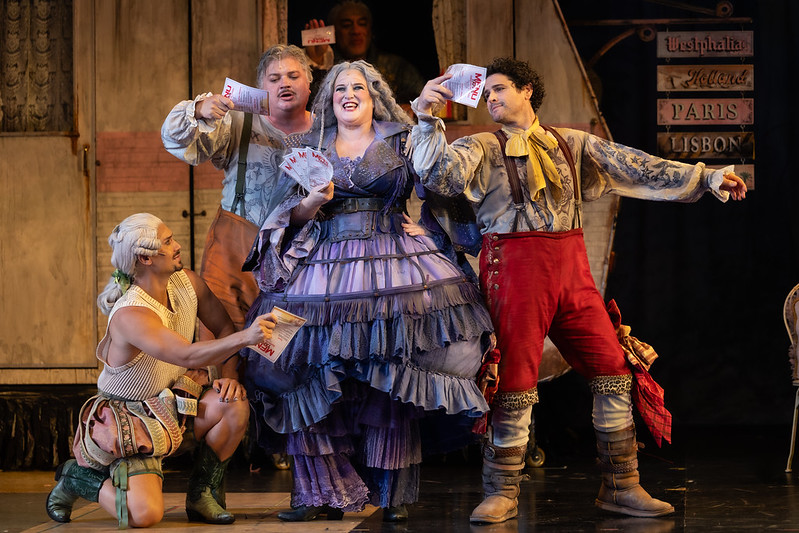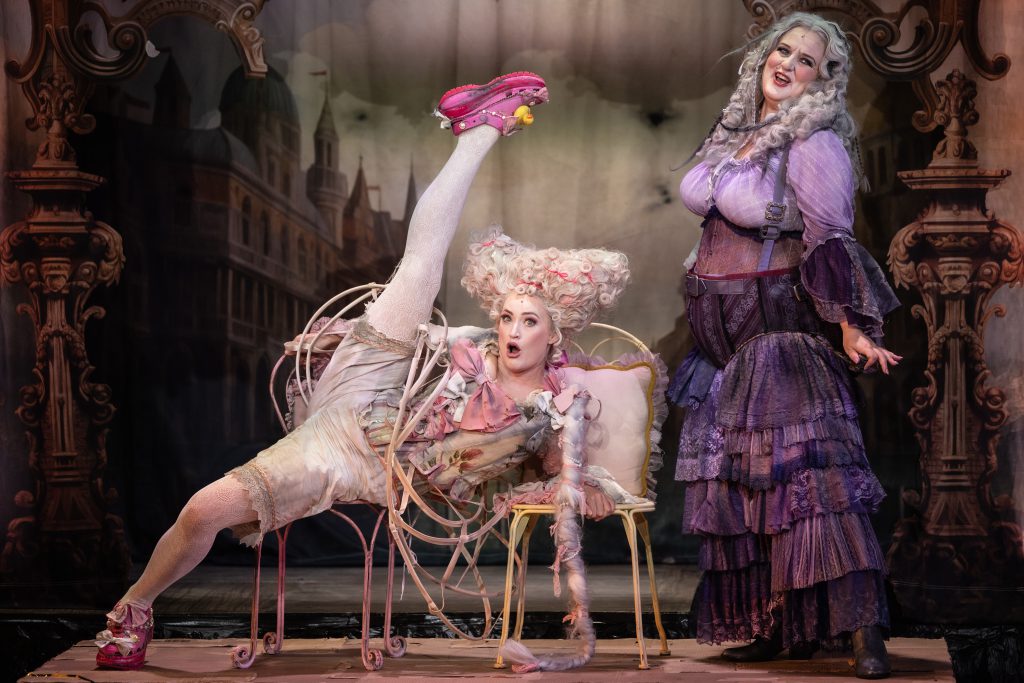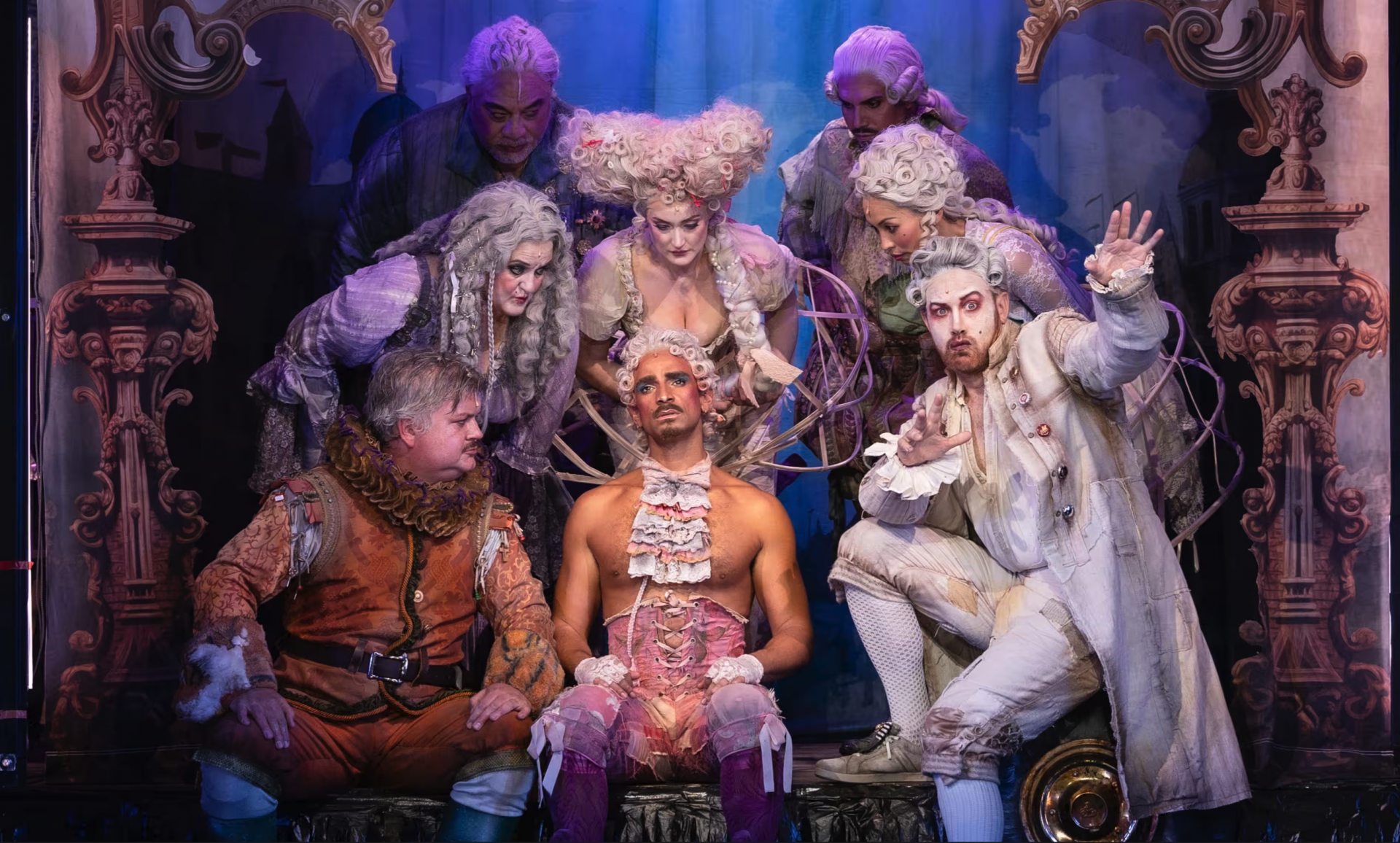From the ridiculous to the sublime to the ridiculous.
Voltaire and Bernstein were both connoisseurs of the human condition and of human folly. So it was almost destined for one to set the satirical work of the other to music and to the stage. The result is a well-crafted operetta that borders on musical.
The overture is well-crafted and contains most of the motifs that will appear throughout the operetta. It seemed to lack lustre in the beginning but picked up in the end.
Australian brogue and scenes of suburban mediocrity abound in this rendition. The impression is that all is not what it seems. The haughty Dr Pangloss (Eddie Perfect) is a slippery cad, the idyllic Westphalia a caravan site. Our narrator (also Perfect, in a dual role) is a foul-mouthed bogan who is wont to break the fourth wall at every opportunity. Yet it takes some time for the characterisations of each persona to really set in. The result was a cautious audience that was not yet entirely convinced of the whole conceit.
By some sophistry, Dr Pangloss professes that this is the best of all possible worlds. The aria is tied off nicely by a polyphonic coming-together that is redolent of bel canto trios. The ever-optimistic Candide (Lyndon Watts) discovers love and becomes a gormless teen infatuated with the noble Cunegonde (Annie Aitken).

While the Lisbon earthquake of 1755 inspired Telemann’s religious devotion in his Donnerode, it inspired quite a different sensibility in the sceptical Voltaire. So too Bernstein. After the earthquake comes the delightfully ridiculous “Auto da fe” scene. John Longmuir made for a convincing Grand Inquisitor – seeking praise and jubilation from the crowd as though it were a sport – and the chorus had much gusto.
Cunegonde’s aria in “Glitter and Be Gay” was truly something to marvel at. She was cast as a Parisian showgirl in a milieu that seemed to be inspired by the Belle Epoque. As she laments her commodification, she is occasionally dazzled by shows of pearls, rubies and snuff. It may as well have been a scene of Fritz Lang’s. Aitken did spectacularly well, hitting high notes with laser precision without ever screeching, and negotiating rapidly descending chromatic lines like a bird. Her performance was the highlight of the night.
Another highlight was Dominica Matthews’ performance as the worldly Polish dame in “I Am Easily Assimilated”. She assumed the role – not to mention the accent – convincingly and with ease and brought out the humour in what might otherwise be entirely banal lyrics – “I’m suddenly Spanish”.

The second Act is dedicated to the New World. It is dedicated more to rushed narrative than to interesting arias. But the highlight is “Alleluia”. That is thanks in part to Bryant’s staging, which casts Maximillian (Euan Fistrovic Doidge) as the camp poster-boy of a Jesuit monastery in the Amazon. Doidge’s performance drew many laughs from the audience and neatly captured the ethos of this entire piece – wavering feverishly from the ridiculous to the sublime and again to the ridiculous.
Overall, the staging gave the effect more of a string of humorous vignettes than a seamless narrative. That is not a criticism. It is the genius of a composition which rather evokes something of a base and ridiculous fever dream than the grand Odyssey of a hero.
That may be so. But it is unfortunate that the whole conceit is upended by a mawkish ending that descends into the overt didacticism of a morality play – we are exhorted metaphorically to tend to our own rose gardens. Was that not precisely what Voltaire set out to destroy?
